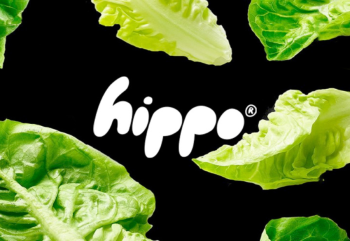
US-based Hippo Harvest, an indoor farming start-up has announced that it closed its latest funding round with $21m of commitments.
The funding will be used to scale its greenhouse operations and to expand its product offerings into new categories of leafy greens.

Discover B2B Marketing That Performs
Combine business intelligence and editorial excellence to reach engaged professionals across 36 leading media platforms.
The “controlled environment agriculture” company’s Series B funding round was led by Standard Investments.
Congruent Ventures, Amazon’s Climate Pledge Fund, Hawthorne Food Ventures, and Energy Impact Partners also invested.
Hippo Harvest CEO Eitan Marder-Eppstein said: “We’re excited by the opportunity to scale our production and reach more consumers with high-quality, sustainable produce.
“Our team’s work over the past 12 months demonstrates our ability to create modular, cost-effective growing systems that can be deployed across the country.”

US Tariffs are shifting - will you react or anticipate?
Don’t let policy changes catch you off guard. Stay proactive with real-time data and expert analysis.
By GlobalDataLogan Ashcraft, principal at Standard Investments, who joins the food producer’s board of directors said: “Since inception, Hippo has delivered superior produce while maintaining cost efficiencies.
“Standard invests in companies disrupting traditional industry and we are thrilled to partner with Hippo on its journey to scale.”
Hippo Harvest, founded in 2019, and headquartered in San Francisco, develops sustainably-grown produce.
Its portfolio includes leafy greens and salad mixes under the Hippo brand name.
Its products are available through Amazon Fresh, and US-based local grocery chains: Guss’s Community Market, Rebyl Food and Mar-val.
The business uses “closed-loop, direct-to-root fertiliser systems, machine learning and robots to grow fresh produce in repurposed greenhouses”.
it suggests its greenhouse model “enables produce to be grown closer to consumers using fewer inputs (such as water, fertiliser and energy)”.
Until fairly recently indoor farming was touted as the best way to feed a growing population, now its future seems to hang in the balance.
Soaring energy prices in Europe are just one external pressure to have exposed cracks in business plans, leaving start-ups vulnerable.
In May 2023, London-headquartered Infarm shuttered operations on the Continent to focus on “regions better suited for indoor farming” while in April, New York-based Upward Farms threw in the towel after ten years, citing the “infinitely complex” industry.


